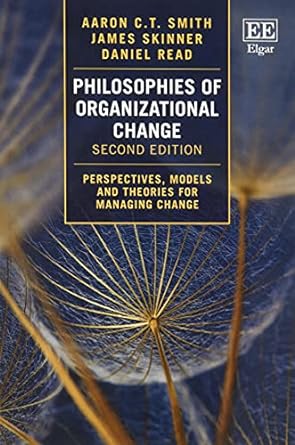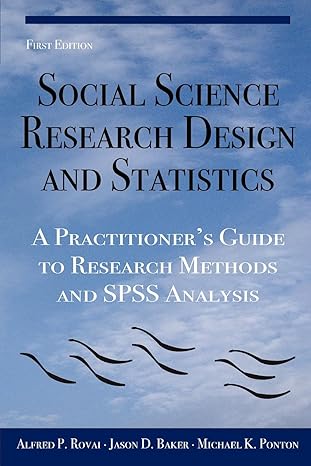Go back


Philosophies Of Organizational Change Perspectives Models And Theories For Managing Change(2nd Edition)
Authors:
Aaron C.T. Smith ,James Skinner ,Daniel Read

Cover Type:Hardcover
Condition:Used
In Stock
Shipment time
Expected shipping within 2 DaysPopular items with books
Access to 30 Million+ solutions
Free ✝
Ask 50 Questions from expert
AI-Powered Answers
✝ 7 days-trial
Total Price:
$0
List Price: $161.00
Savings: $161(100%)
Solution Manual Includes
Access to 30 Million+ solutions
Ask 50 Questions from expert
AI-Powered Answers
24/7 Tutor Help
Detailed solutions for Philosophies Of Organizational Change Perspectives Models And Theories For Managing Change
Price:
$9.99
/month
Book details
ISBN: 1800888430, 978-1800888432
Book publisher: Edward Elgar Publishing
Get your hands on the best-selling book Philosophies Of Organizational Change Perspectives Models And Theories For Managing Change 2nd Edition for free. Feed your curiosity and let your imagination soar with the best stories coming out to you without hefty price tags. Browse SolutionInn to discover a treasure trove of fiction and non-fiction books where every page leads the reader to an undiscovered world. Start your literary adventure right away and also enjoy free shipping of these complimentary books to your door.
Book Summary: This revised and extended second edition evaluates the diverse approaches to organizational change that have defined the field. Explaining the assumptions and implications that accompany these diverse philosophies, this book demystifies the complexities of conflicting perspectives and delivers valuable insights into the research and practice of organizational change. Philosophies of Organizational Change employs a critical analysis of scholarly writings that have shaped the evolution of alternative perspectives on change. It examines twelve unique approaches to change, charting the territory from philosophy and theory to practice and implications. By uncovering the deep assumptions associated with organizational change, the book supplies readers with a comprehensive analytical toolkit with which to pursue change in an unprecedented era of organizational disruption.Offering a guide through contradictory approaches to implementing change, this book will appeal to scholars and researchers in organization theory. It will also be valuable for MBA and DBA students, as well as undergraduate business students engaging with critical debates on theories and tools for introducing change.
Customers also bought these books
Frequently Bought Together
Top Reviews for Books
Instant 04qsl0
( 5 )
"Delivery was considerably fast, and the book I received was in a good condition."










